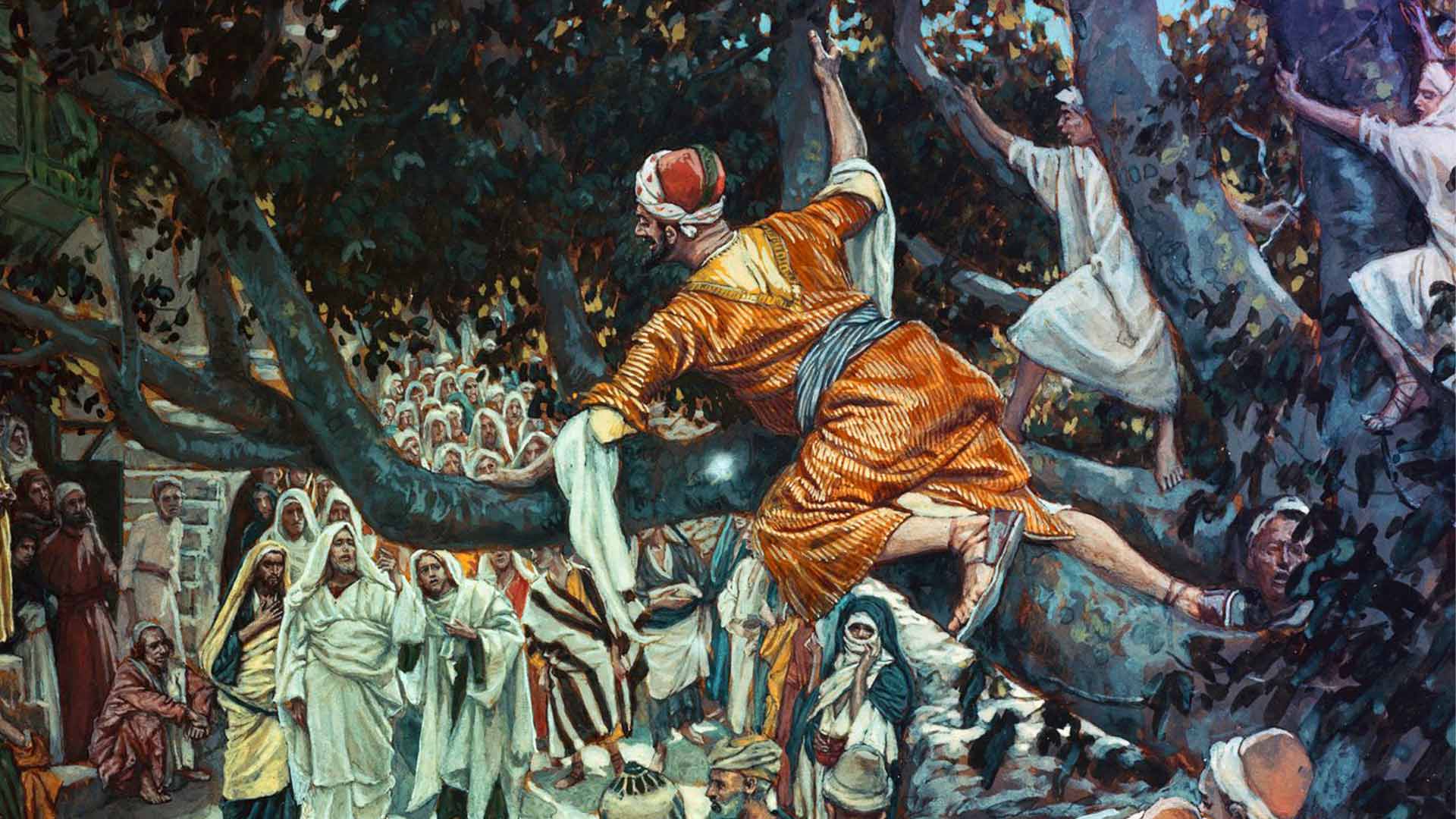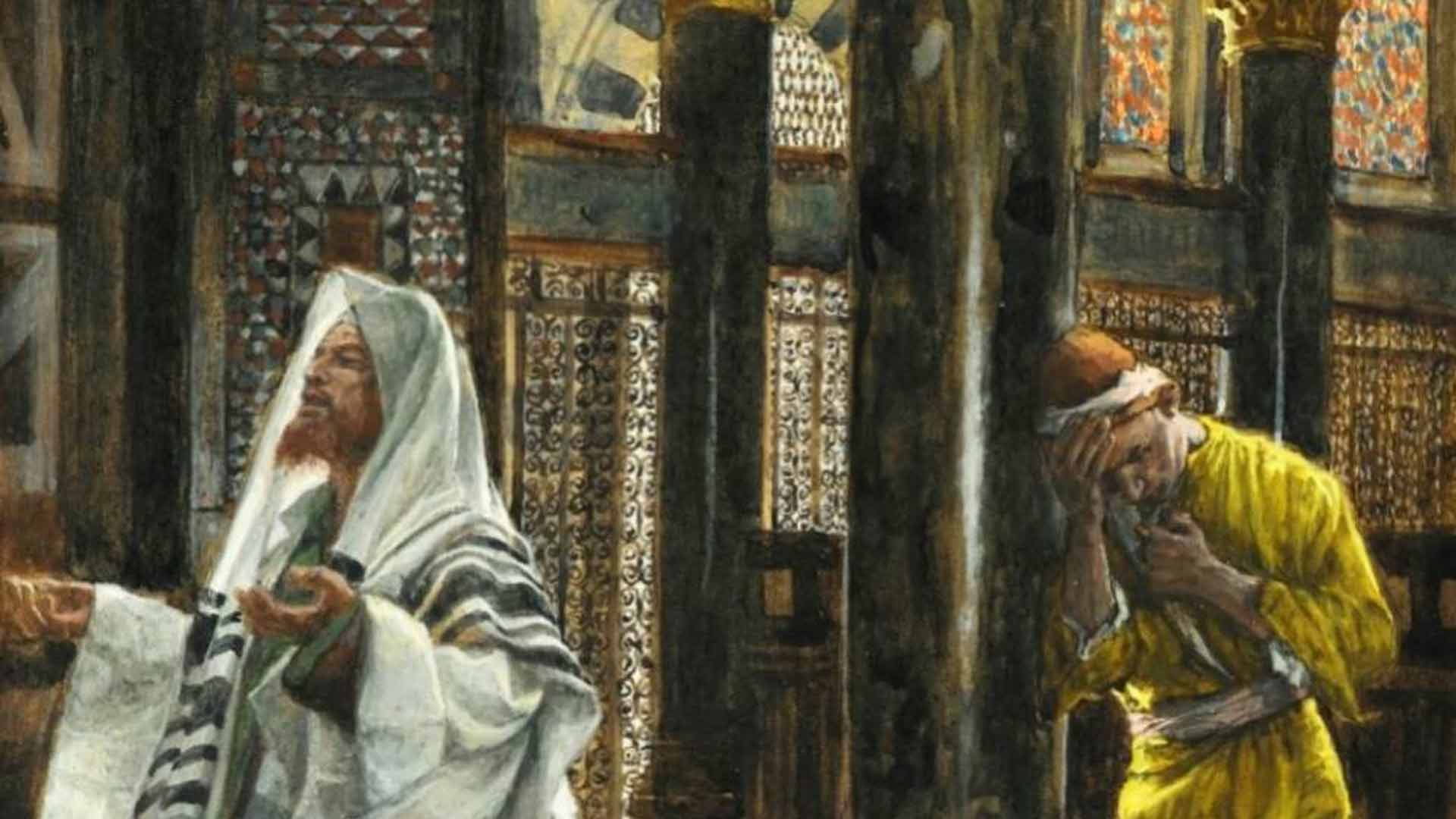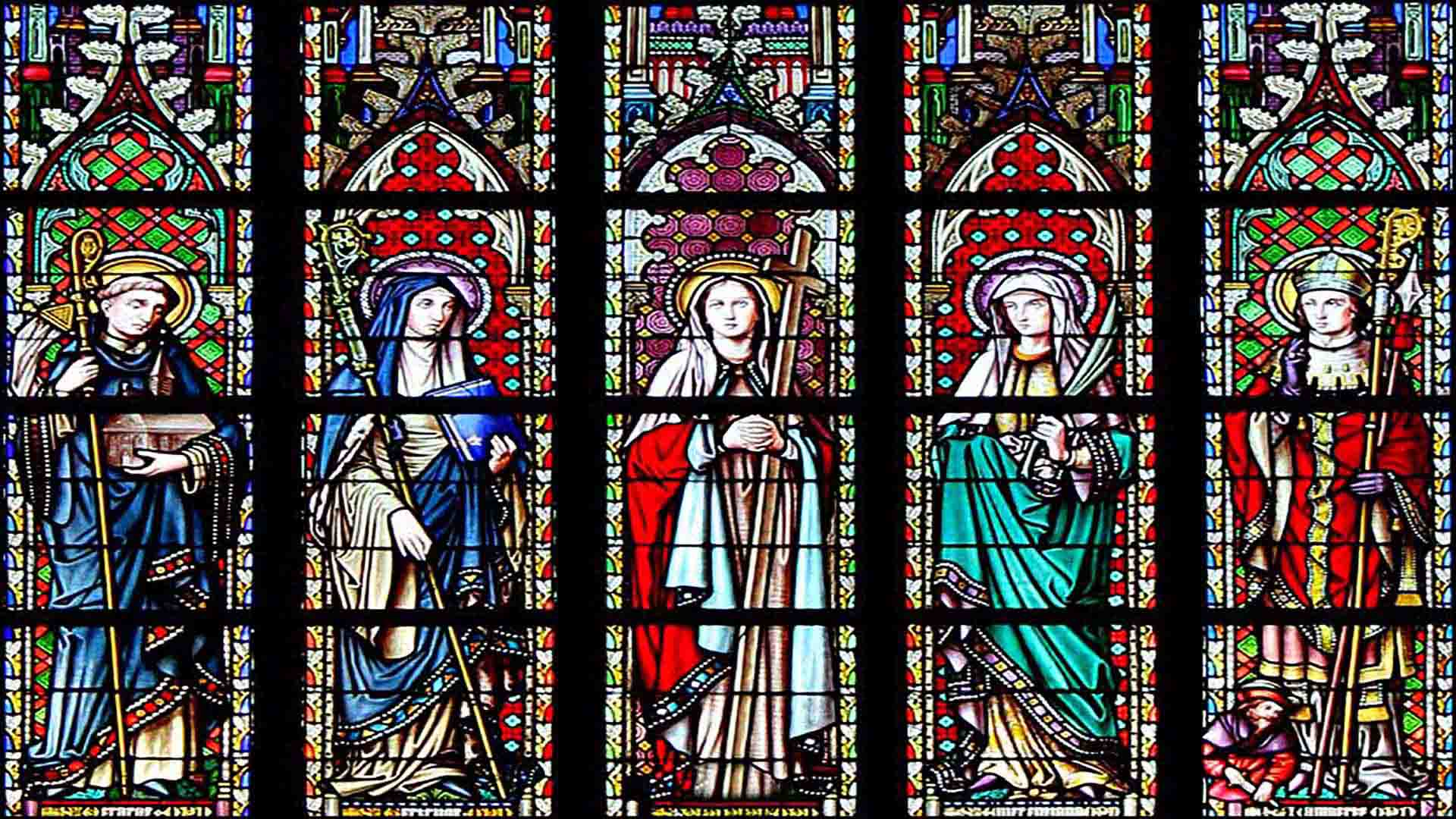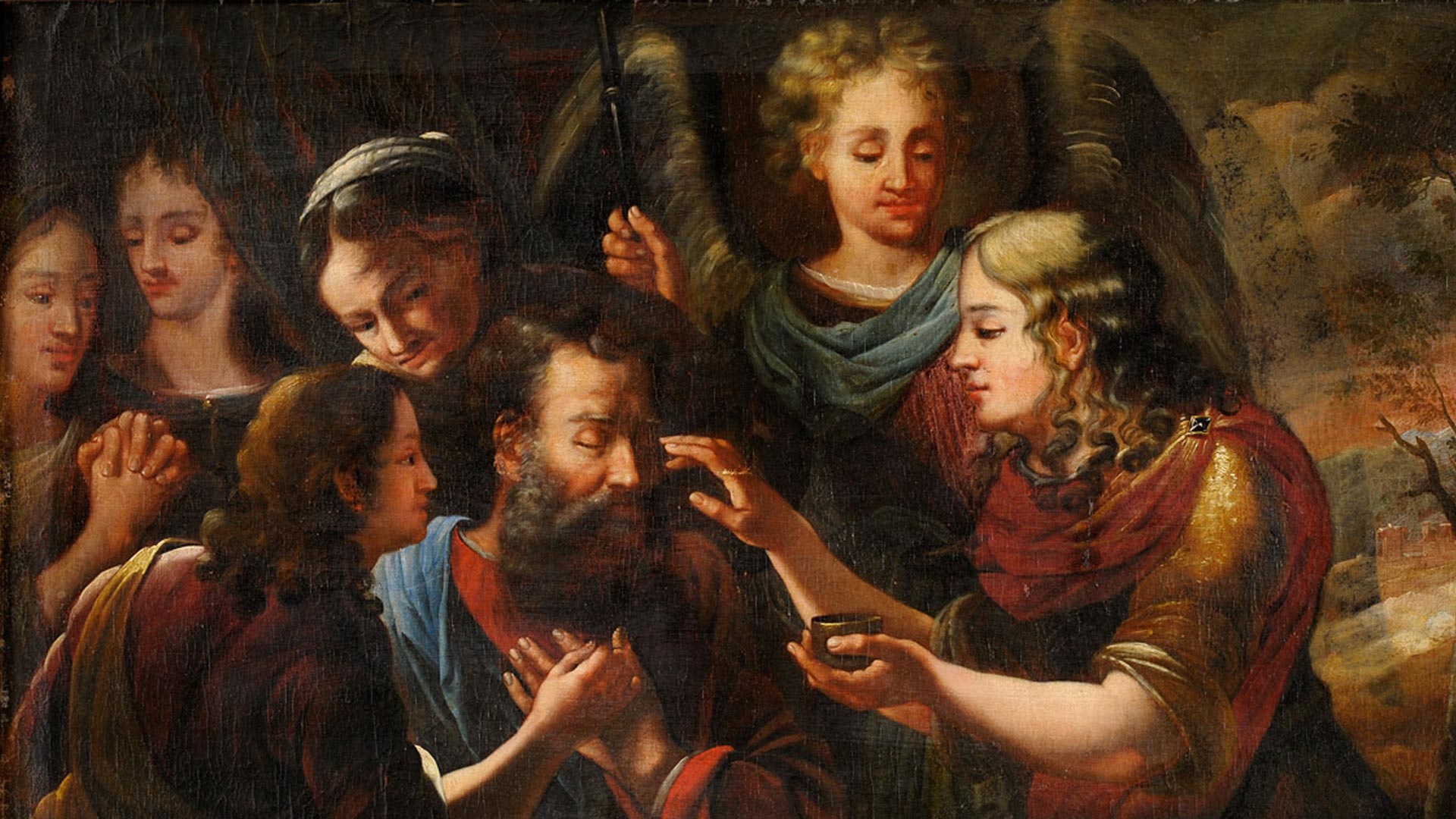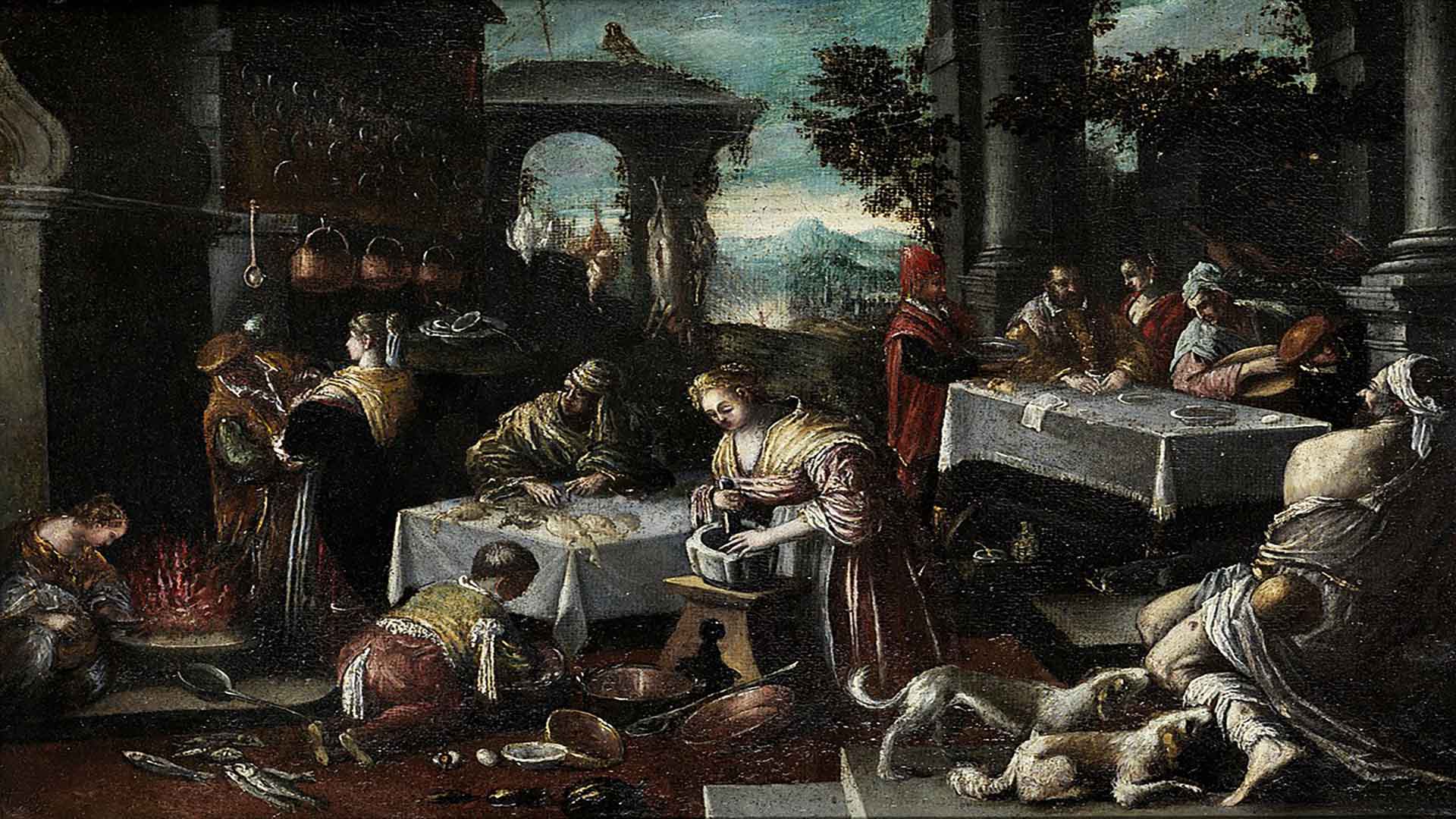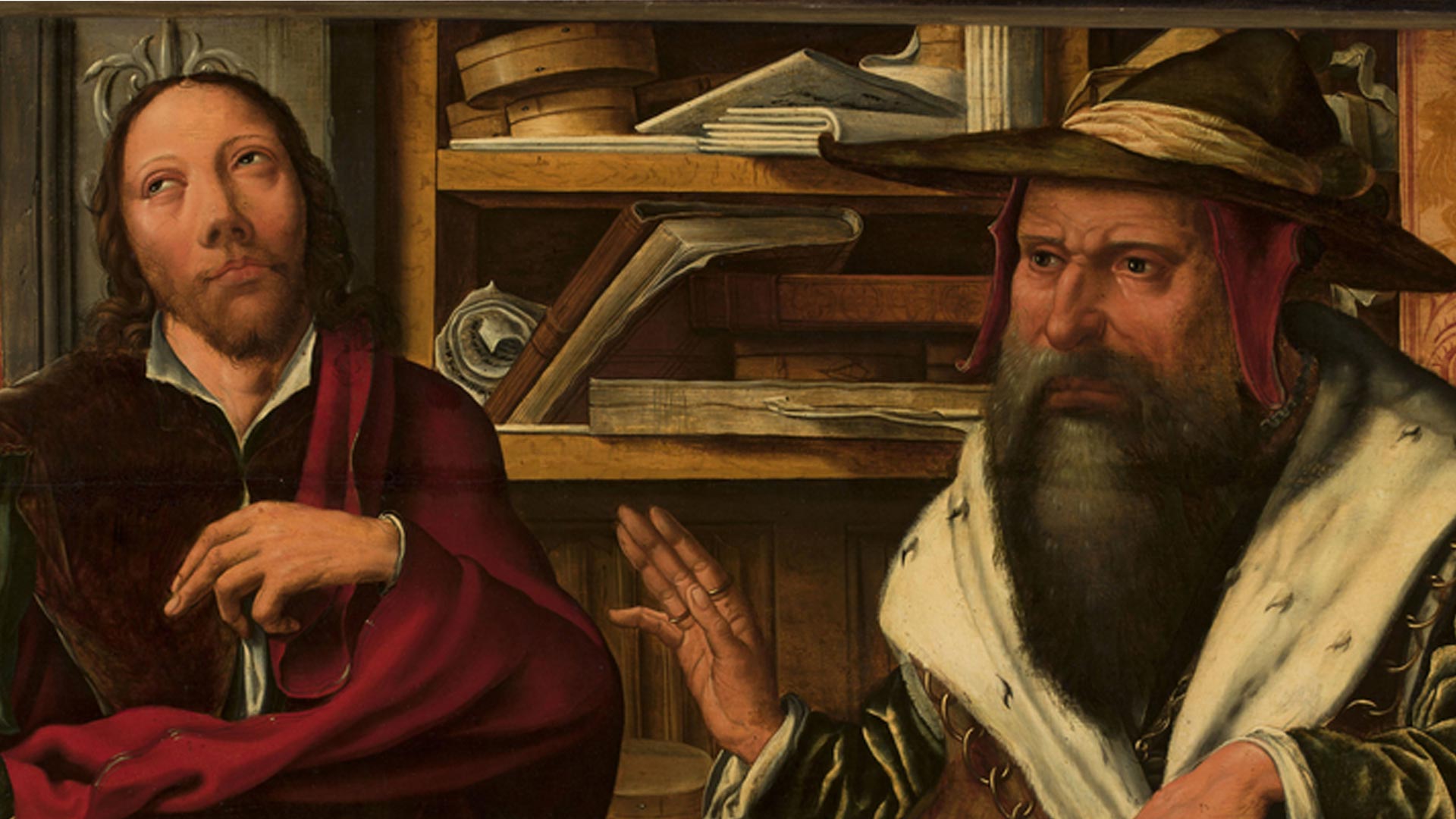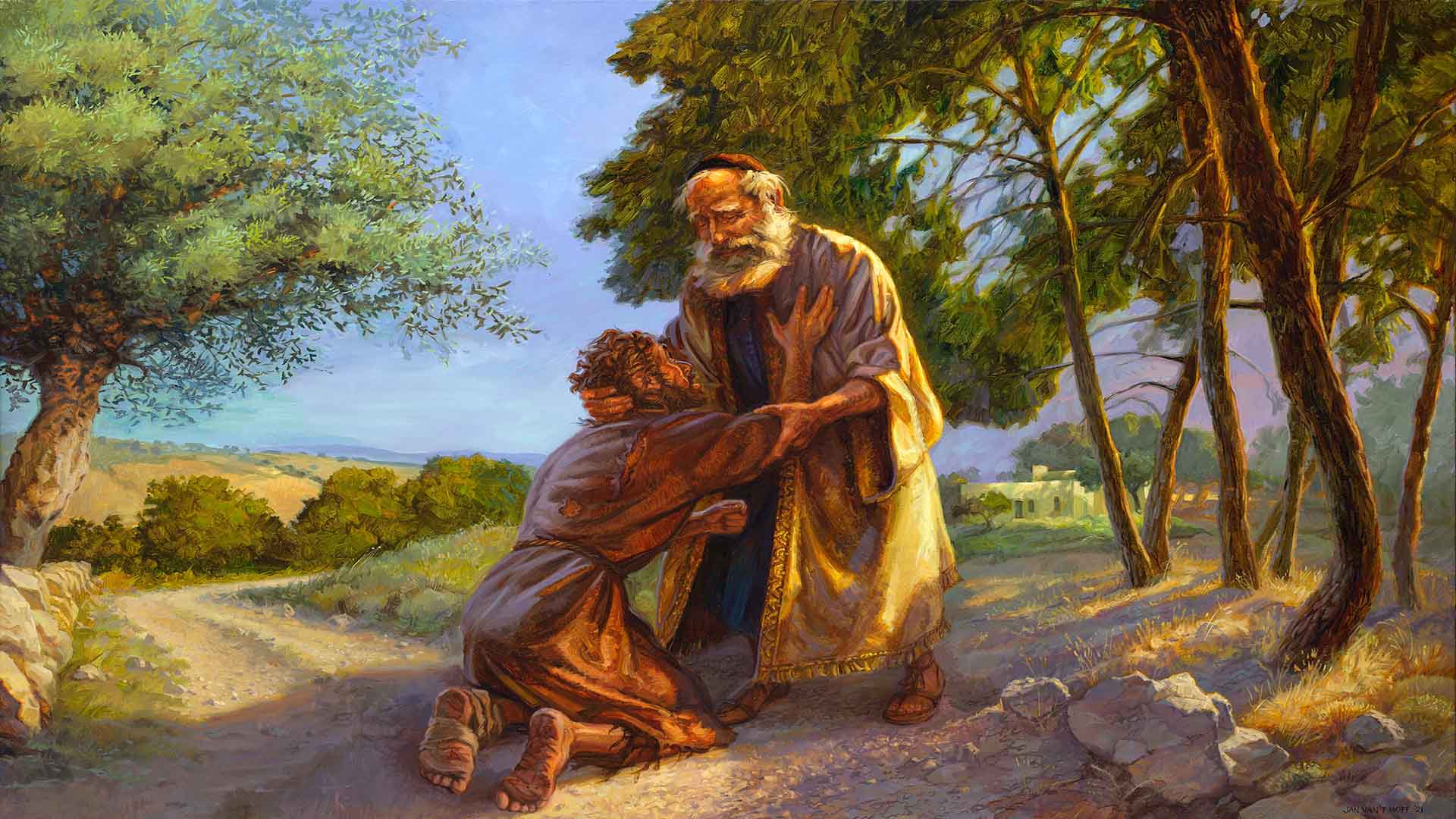Repentant and Ready
As the curtain gradually comes down on the liturgical year, the readings focus on the Last Things: Heaven, Hell, Death and Judgement. Unfortunately, there is a strange conspiracy of silence over those four realities associated with the end of the world. They are seldom mentioned in homilies, sermonettes or sermons, but it is in the fitness of things to exercise our minds and hearts in this regard. They form an integral part of our Lord’s command “Go into all the world and preach the Good News to everyone” (Mk 16:15), the Good News being that of our eternal salvation.
The First Reading (Wis 11: 22; 12: 2) expresses King Solomon’s faith and trust in God’s omnipotence. The son and successor of David bows in deep humility before the One for whom the world is but a speck. His creation continues to exist because He wills it. He lauds His mercy and love. By His infinite love, He corrects “little by little those who trespass”; He gives us a long rope but also warns us. He wants us to be happy through our participation in the divine life. Not even philosophers had come upon such a marvellous doctrine before.
If we pause to review how well we accept God’s gentle interventions, which come in least expected ways, we will see that He is kind and compassionate, slow to anger and abounding in love. His ways are so different from ours that we sometimes distrust them. His message may not be music to the ears but is the truth nonetheless. We ought to thank the Lord and praise His Holy Name, which, alas, the rich and famous sometimes fail to do.
Zacchaeus in the Gospel (Lk 19: 1-10) was an exception to that rule. A rich tax collector, he yearned for a divine encounter. He felt rewarded when Jesus visited his home. There were murmurs, because as per the Jewish law communicating with sinners meant impurity. To them, it was a scandal; to Zacchaeus it meant a change of heart. The people did not realise that the Son of Man had come “to seek and to save the lost”. Indeed, what a difference it made in Zacchaeus’ life! His act of renouncing material goods was a sign that he was ready to receive spiritual goods.
Don’t we have a standing invitation to redirect our gaze to Heaven? It pays a hundredfold to seek the Lord and His Kingdom. The peace and joy that fills us is invaluable; the treasure that awaits us in Heaven, incomparable. Hence, we should live dignified lives, worthy of the Lord’s call.
In that regard, St Paul’s message (2 Thess 1: 11; 2: 2) in the Second Reading today is ever relevant. Like us, the Thessalonians too lived in times of persecution and tribulation, which put their Christian vocation to the test. They believed the end of the world was imminent. The Apostle of the Gentiles moderates their euphoria and gives them hope of the time when Jesus comes again in His glory: those who once faced trouble for His sake will now find rest and consolation; they will be glorified, whereas their persecutors will go to their eternal damnation.
When we are assailed by temptations and fears, we must not be shaken. There are both true and false prophets in our midst; we must not rush or feel excited but be calm and discerning. We must work to let His Kingdom come here on earth. We must repent for our sins and be ready to receive our reward. For one thing is sure: God is in control of every situation and will not allow His Bride, the Church, to face defeat. Similarly, we have the reassuring words of Our Lady, Mother of Jesus and of the Church: “In the end, my Immaculate Heart will triumph.”
Prayer of the spiritually oppressed
Today’s readings very especially bring hope to the oppressed. They speak of God’s ways as different from man’s ways. Those who trust in the Lord can thus rest assured that they will be protected on earth and rewarded in Heaven.
In the First Reading, from the Book of Sirach (35: 12-14, 16-18), we hear the reassuring message that God is impartial; He lends a listening ear to those who call on Him, He responds to our prayers, and above all, He does justice to the righteous. What a far cry from human justice, which is vitiated by relativist thinking, very often prompted by friendships and/or self-interest.
When our miserable world talks of justice, it is usually on the material plane. This is important, no doubt, yet material oppression, be it physical or economic, is not the only thing we ought to shun. Man does not live by bread alone but by every word that proceeds from the mouth of God: which makes oppression of the spirit the worst form of oppression indeed.
The spiritually oppressed are those prevented from realising their basic reason of being: the realisation of God’s kingdom on earth. Ironically, some who are obliged to undertake this noble task, by virtue of their office, simply take God for granted. Some others even assume a sort of spiritual superiority vis-à-vis the man in the street; or perhaps are so hard-hearted that they fail to empathise with the poor sinner who has had a change of heart. Hence our Lord’s words of indignation: ‘Woe to you, teachers of the law and Pharisees, you hypocrites! You shut the kingdom of heaven in men’s faces. You yourselves do not enter, nor will you let those enter who are trying to.’ (Mt 13)
In today’s Gospel (Lk 18: 9-14), we have the parable of the Pharisee who assumes that he has a hotline with God; he despises the tax collector who is at the receiving end of society. Can the Pharisee’s mere observance of the letter of the law let him take the moral high ground? Perhaps the major difference with their counterparts in our day and age is that these take the moral high ground even while they blatantly break the traditional and written law. It is tantamount to Satan in Paradise Lost saying: ‘Evil, be thou my good.’
Thankfully, in St Paul we have an advocate of the spiritually oppressed. In his second letter to Timothy (4: 6-8, 16-18), he announces that while on the point of being sacrificed the Lord it is who rescued him from the lion’s mouth, from every evil, and gave him the strength to proclaim the Word fully – that all Gentiles may hear it!
Woe to those who today seek to muffle rather than proclaim the Word of God. This is the worst kind of oppression that the spirit can endure. But, then, those who have given themselves heart and soul to Jesus Christ will endure just anything – with serenity and joy – and when their time is up, they will gladly say: ‘I have fought the good fight; I have finished the race; I have kept the faith. Henceforth there is laid up for me the crown of righteousness.’ This moral certainty will be the crowning glory of the prayer of the spiritually oppressed.
Persevering in Prayer
Alexander Pope, one of Britain’s Catholic poets, famously wrote, ‘Hope springs eternal in the human breast.’ Although this is now an oft-repeated quote, how many realise that hope is sustained by prayer? Today’s Readings dwell on the need to pray at all times – a theme at the heart of Christian living and which has been treated at length by saints and spiritual masters down the ages.
The manner in which the First Reading (Ex 17: 8-13) describes the struggle between the Amalekites and the Israelites may lead some to think that prayer is a magical formula, or even that God has his favourites whom He grants all requests. It must therefore be noted that, while Moses directed Joshua, his successor, to engage Amalek in battle, he himself kept watch and prayed incessantly for the success of his nation’s efforts.
If we note the supernatural trust and confidence that Moses had in the Lord, and the fact that God does not save unless man partakes of his own salvation, we can draw a practical lesson for ourselves: that we must do what we can before we expect fellow humans and God to help us. And when we have done our best, God does the rest!
In the Gospel (Lk 18: 1-8) of the Unjust Judge, Jesus impresses on his disciples the need to pray always – and without becoming weary. This parable bears a close resemblance to that of the Friend at Night. Elsewhere, Jesus says, ‘Ask, and it shall be given you; seek, and you shall find; knock, and it shall be opened unto you.’ (Lk 11: 9) Yet, we are not to take God for granted. We must ensure that our prayer is worthy and pleasing to God; we must pray in humility, faith and perseverance.
But that’s not all. Perhaps a key aspect of our prayer is to talk less and listen more; not try and bend God’s will to ours but ours to His. An indulgent parent may grant their child any kind of request; but not God, who will concede only what, in His omniscience, is in our interest and, thus, in keeping with His Will. No wonder St Augustine suggests that we pray as though everything depended on God and work as though everything depended on us. This wise counsel teaches us how to achieve peace of heart.
In a godless world, many may doubt the efficacy of prayer, but they are the poorer for it. It is pride that prevents them from acknowledging God’s presence and works; only a change of heart can save them. So, it is never a good idea to challenge God, Who has us in the palm of His hand. Thankfully, those open to His loving kindness will be able to stoutly say with Tennyson: ‘More things are wrought by prayer than this world dreams of.’
It is absurd, then, to deny that we are beneficiaries of God’s loving kindness. It is equally absurd that few ever remember His deeds; instead, they wonder how corrupt men and women enjoy a great time on earth and demand that God shows His justice forthwith! He will, in His time. And, for His part, He never forgets the labour of love shown towards His Name. St Luke says, ‘He will see to it that justice is done for them speedily.’
In fact, the Evangelist makes a suitably cutting retort to ungrateful humans: ‘When the Son of Man comes, will He find faith on earth?’ These words are an eyeopener to the contemporary world, whose words and actions are often an affront to God’s Holy Name and so call for urgent reparation. Alas, in many, love for God has grown cold! St Paul in the Second Reading (2 Tim 3: 14 – 4: 2) therefore exhorts us to ‘remain faithful to what you have learned and believed, because you know from whom you learned it’ – a reference to Sacred Scripture and Tradition.
Indeed, the Scriptures are our rock, capable of giving us wisdom for salvation through faith in Christ Jesus. We ought not to twist them and ingratiate ourselves with the New World Order; rather, we are to use them ‘for teaching, for refutation, for correction, and for training in righteousness.’ How aptly the Apostle of the Gentiles urges us to ‘proclaim the Word; be persistent whether it is convenient or inconvenient; convince, reprimand, encourage through all patience and teaching’! We are called to keep up the Tradition, the spiritual fervour of the Apostles and of our ancestors in the faith, and to serve the Lord – to be ‘joyful in hope, patient in affliction, faithful in prayer.’ (Rom 12: 12)
Banner: Five saints depicted in the Eglise du Sablon, Brussels
Jesus, our Light and our Life
Today’s readings are about giving thanks, glory and praise to the Lord our God for the wonders he has wrought in our life… They are about remembering him with gratitude and never taking Him for granted… They are about doing our bounden duty and awaiting the crown of glory when the race is done.
The first and third readings talk about healing. In the First Reading (2 Kings 5: 14-17) the Syrian general Naaman goes into the Jordan, as recommended by prophet Elisha, and comes out clean, his flesh restored like that of a little child. He returns with a present to thank the man of God, who does not accept it – for he was not there to serve himself but the Lord. Extremely thankful, Naaman wishes to carry earth with which to build an altar for the Lord in whom he now believes, in his land of origin.
In the Gospel (Lk 17: 11-19), only one of the ten lepers who were cleansed return to thank Our Lord. An instance of kam’ zalem, voiz melo (once cured, one forgets the physician), a classic case of human ingratitude. The Master Physician notes that the lone grateful man whose faith had cured him is indeed a foreigner – a man from Samaria, a district that was anathema to Israel.
The two stories above are not about physical healing alone; they are about liberation from sin – yet failing to proclaim the Good News to the world. How many of us who stop everything to ask God for healings and successes also stop to thank God on receiving them?
The Anglican-turned-Catholic writer G. K. Chesterton in his Autobiography stresses ‘the idea of taking things with gratitude, and not taking things for granted.’ But alas, gratitude seems to be one of those rare commodities in our jet age. It is as though we expect everything as a right, not a favour. In our self-centredness no gesture of kindness from another touches our soul. Sometimes, a ‘thank you’ is a mere formality; and when it comes to God, hardly a necessity.
St Paul (2 Tim 2: 8-13) clinches it. He places before us the everlasting model that is Jesus Christ our Lord. Our Lord is faithful even to the faithless – because He can’t be any different. What a noble lesson for humanity. The Apostle of the Gentiles who, a little earlier in the letter to Timothy, had spoken of the good fight, the race, and about keeping the faith, now uses a fragment of a hymn from his area of evangelisation to convey the same message.
The point is: why do we sometimes deny Him? Why are we faithless? Is it mere weakness or is it malice? Sometimes we do not know that we are caught up in the web of the evil one. Let us break free. Let us wake up and think. Let us rise and speak. The Word of God is not fettered. Have faith, Jesus is the Light of the World; those who follow Him will have the light of life.
Rekindling our charisms
The readings of today invite us to nurture great faith in the Lord God who is our Creator, Master and Saviour. However much we may feel discouraged at times, or even lose sight of the path to follow, let the spirit not dry up within us. We have to persevere in faith.
In the First Reading (Hab 1: 2-3; 2: 2-4), Prophet Habakkuk voices the feelings of the people; in his lamentations, he resembles Job and Jeremiah. He wonders if the Lord has forgotten His people, especially the just and the innocent ones. They cry for help but He does not hear; they are about to be destroyed, but He does not save! Finally, Habakkuk conveys a divine message: ‘If it seem slow, wait for it; it will surely come, it will not delay. Behold, he whose soul is not upright in him shall fail, but the righteous shall live by his faith.’
What a lesson for those of little faith! We expect God to do things for us, but what is our contribution to extending His Kingdom on earth? Do we heed His commandments? Do we stand by Him at all times? Jesus tells those who want Him to increase their faith, ‘If you had faith as a grain of mustard seed, you could say to this sycamine tree, “Be rooted up, and be planted in the sea”,’ and it would obey.
On the other hand, praying with faith does not mean imposing one’s personal wishes on Him who has given us that gift; praying with faith means readiness to accept His doctrine and His divine will. Yet, let none think we have done God a favour. In a spirit of love and deep humility, we must believe ‘We are unworthy servants; we have only done what was our duty,’ as the Gospel (Lk 17: 5-10) tells us. This can never be overstated, because it is human tendency to be self-satisfied that they have visited the sick, clothed the naked, fed the hungry!
The Church teaches that both faith and good works are necessary for salvation. Sometimes we are more concerned about showing love to our neighbour but care not about loving God. We take Him for granted. Very often, we fail to speak and stand for Him. Hence, the relevance of St Paul’s exhortation to Timothy (2 Tim 1: 6-8; 13-14): ‘… for God did not give us a spirit of timidity but a spirit of power and love and self-control. Do not be ashamed, then, of testifying to our Lord… guard the truth that has been entrusted to you by the Holy Spirit who dwells within us.’
That’s not always an easy thing to do, but with His help, we can! The Word of God demands great commitment. Moreover, there are secular ideologies at work, which are hostile to Christianity, and render Christian living difficult. Hence, it is important for a pastor that Timothy was, to preserve and faithfully transmit the doctrine of the faith. In a broader perspective, it is a timeless message for all of us who are priest, prophet and king, and have received ‘the gift of God’, the charisms that lie within us. We must not leave them idle; we have to rekindle them.
Spare a thought for the other!
What a mighty God we serve! Whether we have won a fortune or suffered a misfortune, He conveys a message meant to open our eyes and help mend our ways. In the last two weeks, when we witnessed the tainting of two hallowed arenas (read ‘Elephantine Blunder’ and ‘Mother of all crises’ in this blog) – the respective Sunday readings were spot on! But did those concerned take a leaf from the Book of Books? This Sunday, God in His infinite mercy gives us another chance.
The First Reading (Amos 6: 1.4-7), once addressed to the nobility of Israel, is now a message for Everyman, be it in Goa or California. Prophet Amos admonishes those who only eat, drink and make merry; ‘lie upon beds of ivory and stretch themselves upon their couches’, and show least concern for their suffering brethren. They are beneficiaries of God’s munificence, yet ‘are not grieved over the ruin of Joseph!’ (a reference to the ten tribes of Israel with whom Joseph’s name became synonymous).
The Second Reading picks up where the previous one left off. St Paul (1 Tim 6: 11-16) advises the faithful to ‘aim at righteousness, godliness, faith, love, steadfastness, gentleness.’ How many of us love the truth in its fullness; stand by God at all times; live in deep faith; show love to family and friends; are committed; and, without a hint of pride, are fortiter in re, suaviter in modo – firm in action, gentle in manner?
 The Gospel (Lk 16: 19-31) puts it all so vividly in a parable. An unnamed rich miser who cared for none but himself is plagued in hell; whereas poor Lazarus, once at his mercy on earth, enjoys the Beatific Vision. As Mephistopheles says in the last Act of Marlowe’s The Tragical History of Doctor Faustus: ‘Fools that will laugh on earth must weep in hell.’ Perhaps the rich man’s only charitable thought consisted of a request to God to warn his family, ‘lest they also come into this place of torment.’
The Gospel (Lk 16: 19-31) puts it all so vividly in a parable. An unnamed rich miser who cared for none but himself is plagued in hell; whereas poor Lazarus, once at his mercy on earth, enjoys the Beatific Vision. As Mephistopheles says in the last Act of Marlowe’s The Tragical History of Doctor Faustus: ‘Fools that will laugh on earth must weep in hell.’ Perhaps the rich man’s only charitable thought consisted of a request to God to warn his family, ‘lest they also come into this place of torment.’
Finally, if the popstar believes that ‘Heaven is a place on earth’ and ponders the ‘mystery of living’; it is equally important to contemplate the mystery of death. Today, St Luke has invited us to examine the transition from earth to eternity, and work towards a change of heart. St Paul has highlighted God’s Kingship vis-à-vis the sinful practice of paying tribute to false gods. He warmly exhorts us to heed God’s Word, ‘fight the good fight of the faith’, and praise to the Lord Who gives life to all things, ‘Who alone has immortality and dwells in unapproachable light’. Meanwhile, let's spare a thought for the other and we will receive a hundredfold.
Mother of all crises
Are you overwhelmed by the ways of the world and believe the corrupt get away unharmed? Well, those who imagine they hold God in their pocket are sadly mistaken. Not only has God foretold the course of human behaviour, He has numbered the hairs on our head. Most of all, He has listed acts of commission and omission that will come back to haunt us some day.
Consider the First Reading (Amos 8: 4-7). It’s a clear message to those who ‘trample upon the needy and destroy the poor of the land’ – those crooks who snatch bread from the tables of simple, credulous citizens, and rather than be sent to jail are sent to Parliament! It also addresses those who, in the privacy of their homes or institutions, tell lies, bully and beat, exploit and cheat, drink and debauch, and without any qualms of conscience go out and preach. Amos, who shines in history as a prophet of social justice, warns that the Lord will never forget a thing they have done!
Thankfully, in God we trust. As the Psalm says,
He raises up the lowly from the dust;
from the dunghill he lifts up the poor
to seat them with princes,
with the princes of his own people.
For our part, then, how are we to conduct ourselves? Wherever we may be, we are stewards by default – managers of the time and tasks entrusted to our care. And it is never for long; popular wisdom says, ‘Sonvsar charuch disancho’. Yet, how casually we handle our duties and responsibilities, joys and sorrows, problems and solutions!
In the Gospel (Lk 16: 1-13), Jesus is appreciative of the shrewd steward’s efforts to provide for his future; it is not the steward’s expediency but his decisiveness that Jesus focusses His attention on. Then come two most illuminating remarks: ‘The children of this world are wiser in their own generation than the children of light,’ and 'You cannot serve both God and mammon.'
Who can deny that the worldly-wise are more diligent than the spiritual-minded, and evil more active than good? That’s a clarion call to God’s people to be more dynamic and combative! We have to show greater enthusiasm and go forward together with our united strength, for indeed the price good folks pay for lukewarmness is to be ruled by evil doers.
The world is a common inheritance we have received from God. Whoever prevents us from enjoying its benefits is guilty of a grave crime. Which puts the spotlight on elected representatives: if they lack a moral compass, they easily turn responsibility into revelry and God’s kingdom into their personal fiefdom.
Truly, moral crisis is the mother of all crises. Hence, St Paul in the Second Reading (1 Tim 2: 1-8) invites us to pray that our leaders be instruments of peace and justice leading us to our eternal salvation as Jesus envisaged it.
Banner: https://useum.org/artwork/Parable-of-the-shrewd-manager-Luke-16-1-13-Marinus-van-Reymerswaele
Crucible of love and mercy
It’s never too much to talk of love and mercy. God is a crucible of love and mercy – celestial material that humans yearn for. And be it between parents and children, husband and wife, neighbours, friends or foes, love and mercy are of the essence; they keep the machine of life oiled and running sweetly.
God the Father, who is the source of all that is good, has set the example. In the First Reading (Ex 32: 7-11, 13-14) God is rightfully angry with His people for forgetting Him Who had delivered them from the slavery of Egypt. Now they worship abominable little gods of their own making.
In the Gospel (Lk 15: 1-32), we read three delightful parables that highlight the extent of God’s love and mercy. The Divine Master’s abiding concern is to reach out to those in need, so He responds to those who fail to appreciate His mingling with sinners. Jesus speaks of the proverbial shepherd going out in search of his lost sheep and of a woman who is in search of a lost coin.
Alternatively, we could look at the lost sheep and the lost coin as entities hoping to be found or saved by their respective owners – in the same way as our spirits thirst for the love of the Father!
Yet, the most heart-warming part of the trilogy on redemption is that parable about the Prodigal Son. It covers a whole gamut of human experiences: if the younger son could be booked for greed, lust, gluttony and sloth, the pharisaic elder one is symbolic of pride, greed, envy and wrath. Between them they have all of the seven deadly sins! And whereas the son is prodigal – extravagant – with his money and possessions, the father is prodigal – overgenerous – with his love and mercy.
Finally, St Paul’s frank testimony (1 Tim 1: 12-17) echoes a common experience. Just as he acted out of ignorance, sometimes we too aren’t careful about how we judge people and situations. We dub parental concern or spousal devotion ‘paranoid’; neighbours’ concern, ‘inquisitiveness’; and friends suddenly become foes for unexplained reasons. In the midst of it all, and much against the evangelical command, we stay put and criticise everyone; we don’t care to lift even a finger to help those in need – maybe for fear of getting it wrong, or simply out of laziness or indifference!
That’s when it will pay to remember that the divine crucible of love and mercy is peppered with justice!
Banner pic: https://www.gospelimages.com/paintings/96/the-return-of-the-prodigal-son?
Surrender and Win
We have heard it said so many times that life is a mystery; but isn’t that so because the One who has created us is a Super-Mystery? We have neither seen Him, so as to be able to judge for ourselves, nor have we heard enough about Him to say we know Him completely. Yet we go on from day to day, based entirely on our relationship with Him who is the Unknown but also the only One who can save us.
We humans are eyeballs that can’t see and earlobes that can’t hear, especially when we are immersed in the world. Yet, the Almighty addresses those who have eyes to see and ears to hear, particularly when we renounce worldly attractions, our mind and all our senses give us an understanding of the present and the final reality. When we give ourselves up in sweet surrender, God lets us in on the secret of His wisdom (Wis 9: 13-19), through the working of the Holy Spirit who has meanwhile descended upon us. Then we begin to appreciate God's ways and desires, for He reveals Himself to those desirous of that unique experience.
 Seeing that humans had foolishly turned in on themselves and were acting like little gods, our Father in Heaven sent His Only Son Jesus to the world. In the Gospel today (Lk 14: 25-33) Jesus shakes the people out of their complacency. Putting all His cards on the table, He demands nothing less than total commitment, total acceptance of God’s ways and total surrender to the Father. As He says elsewhere, ‘Whoever is not with Me is against Me’.
Seeing that humans had foolishly turned in on themselves and were acting like little gods, our Father in Heaven sent His Only Son Jesus to the world. In the Gospel today (Lk 14: 25-33) Jesus shakes the people out of their complacency. Putting all His cards on the table, He demands nothing less than total commitment, total acceptance of God’s ways and total surrender to the Father. As He says elsewhere, ‘Whoever is not with Me is against Me’.
It is paradoxical but true that the more we give of ourselves to God, the more we feel free – it is a freedom easily verifiable from our everyday experience. Who can deny that the more we are attached to the ways of the world, the more we are in chains? Unbridled love for earthly things, be it money, power, influence, knowledge, is enslaving! On the other hand, how liberating it is to know and love God more and more!
That is why St Paul (Phil 9-10, 12-17) pointed out to Philemon, a man of high social standing, whom he had converted to Christianity, that it is of the essence that his slave, also a neo-convert, be treated humanely, as a brother in the faith. This new spirit in which the Apostle of the Gentiles wrote his short but important letter indeed prepared the world, mentally and spiritually, for a great transformation that finally led to the abolition of slavery.
The Lord has been our refuge from generation to generation! The readings of today invite us to keep a tab on the life of our minds and hearts, and to find out what can fetch us true peace and happiness. One thing is sure: without God’s help, we can do nothing – we are nothing! A sweet surrender to His will is a promise of our final victory.
Switching off our vanity lights
Today’s readings form an exceedingly beautiful trilogy. The folly of vanity is illustrated with a parable and rounded off with a nugget of wisdom about gazing heavenward. They make an interesting counterpoint to the capricious lifestyle of contemporary man.
Did you know that there was a time when ‘vanity’ simply meant ‘emptiness’ or ‘uselessness’ (from the Latin vanitas)? When used to represent arrogant or boastful obsession with one’s appearance, possessions or accomplishments, it underlined the same meaning. The original Hebrew term, sometimes translated as ‘illusion of illusions’, literally meant breath, wind, vapour, implying that things are uncertain, empty, futile.
The First Reading (Eccl. 1: 2; 2: 21-23) could not put it better. Life is indeed a string of vanities! Omnia vanitas: all is vanity. In fact, everything that is extravagant – and not useful or indispensable – is usually conceited: it focusses on the earthly creator and forgets the Divine Creator. This aspect of fallen man is something that Ecclesiastes, one of the ‘Wisdom Books’ of the Old Testament, has bared to thinkers and commoners alike. When its anonymous author says that there is ‘a time to be born and a time to die’, he tells us in no uncertain terms that life is brief and death inevitable.
That we are not masters of our destiny; that what we do lasts brief hours and weeks; that death comes like a thief: such thoughts flood our mind as we hear the Parable of the Rich Fool. Why, then, do siblings fight over land or even honest people build mansions to keep up with the Joneses? Is it not true that we must seek first the kingdom of God and the rest will be given unto us? How about burying our egos, surrendering to God’s will and giving up our acquisitive instinct for things that genuinely matter?
In today’s Gospel (Lk 12: 13-21), Jesus asks: ‘The things you have prepared, whose will they be?’ That’s a very pertinent question, for alas, how we take solace, nay, pride, in the abundance of our possessions, as though we are going to live for ever! But then, Covid-19 has taught us someting as perhaps only Covid can: that our life can change in an instant and from one day to another we may be catapulted to the presence of God. That’s when we will learn, albeit late, the full import of these words from Deuteronomy, with which Jesus shot down the devil in the desert: ‘Man does not live by bread alone but by every word that comes from the mouth of God.’
 In effect, we are faced with an existential question: are we to sell everything, pack up our bags and head to the nearby forest? Clearly, not everybody is called for so radical a decision. We have to live in the world without being of the world; for it is not where we live, but how we live, that matters. Hence, St Paul, in the Second Reading (Col. 3: 1-5, 9-11), exhorts us to seek the things that are above, where Christ is; to set our eyes not on things that are on earth. He sets before our eyes a catalogue of vices that our old self has to be stripped of, and five virtues that our new self has to be clothed with, through baptism: a radical transformation by the action of the Holy Spirit.
In effect, we are faced with an existential question: are we to sell everything, pack up our bags and head to the nearby forest? Clearly, not everybody is called for so radical a decision. We have to live in the world without being of the world; for it is not where we live, but how we live, that matters. Hence, St Paul, in the Second Reading (Col. 3: 1-5, 9-11), exhorts us to seek the things that are above, where Christ is; to set our eyes not on things that are on earth. He sets before our eyes a catalogue of vices that our old self has to be stripped of, and five virtues that our new self has to be clothed with, through baptism: a radical transformation by the action of the Holy Spirit.
But is it all that straightforward? In the world today, it is difficult to be a Christian – not because Christ’s teachings have lost their relevance but because we seem to have lost our conviction. It is true that the secular powers-that-be are continually conspiring to splinter Our Lord’s precepts; on the other hand, haven’t the spiritual powers-that-be played to the gallery and capitulated to the ways of the world? And what are you and I doing to clear the stables? To be ruled by evil men is the price we pay for indifference to civil and ecclesiastical affairs!
The question remains: how do we proceed from here? Flashing before my eyes is St Pope Pius X’s motto: Instaurare omnia in Christ, to restore all things in Christ. To be committed Catholics, living the Gospel values to the best of our abilities, a life in communion with the Resurrected Lord should be our goal. The said Pope was acclaimed for his efforts to root out the Modernist heresy, which he dubbed ‘the synthesis of all heresies’, in his Encyclical titled Pascendi Dominici Gregis (8.9.1907). Much as we are programmed to love the word ‘modern’, Modernism represented an agnostic doctrine that attempted to pull the rug from under the Catholic faith. And, alas, it still does!
The trilogy of readings today invites us to go beyond self and see the world as it is. Isn’t vanity the leitmotif of the contemporary world? A culture of death is being promoted disguised as the culture of life. Engrossed as we are in our own personal worlds, more often than not we miss the larger picture. In fact, you and I unknowingly aid the advance of those cultural forces by the choices that we make every single day. It is high time we shunned the clutter outside and saved ourselves of that painful emptiness inside. Let not the city lights overwhelm us; let us switch our vanity lights and set our gaze on the True Light of the World.
Finally, on the Feast of St Ignatius of Loyola, let us pray that the words he famously said to St Francis Xavier soften our hearts too: 'What does it profit a man if he gains the whole world and loses his soul?' (Mt 16: 26; Mk 8: 36)
